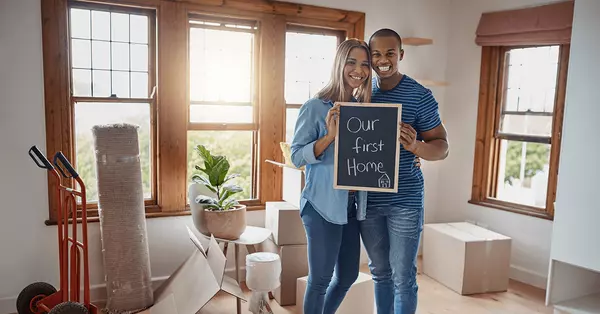Discover the Perfect Home: 1457 W 550 S, Syracuse, UT

Are you in search of a stunning, almost new home in a prime location? Look no further! This 6-bedroom, 3-bathroom house located at 1457 W 550 S, Syracuse, UT 84075 is the perfect place to call home. With a listing price of $680,000, this property offers an array of features that are sure to impress.One of the standout features of this house is the potential for a second kitchen downstairs. Already plumbed and wired for a full kitchen, this presents a great opportunity for those in need of additional living space. Imagine the possibilities! Whether it's a mother-in-law suite, a space for entertaining guests, or simply a more convenient area for meal preparation, this feature adds incredible value to the property.In addition to the potential for a second kitchen, this home boasts numerous other amenities that enhance the overall living experience. The convenient 3-car garage with a keypad allows for easy access, while the charming bay window in the kitchen nook provides a cozy and inviting atmosphere. Sleek can lighting, stainless steel gas appliances, and elegant granite kitchen counters contribute to the modern and stylish feel of the home.Inside, you'll appreciate the attention to detail. The interior is adorned with 2-tone paint, maple cabinets with hardware, and large base and casing throughout the home. The grand master bathroom exudes luxury and provides a retreat-like ambiance. With 8-foot interior doors, the house feels spacious and open, promoting a sense of comfort and tranquility.Location is often a key factor when searching for a new home, and this property does not disappoint. Situated between the freeway and the new west corridor, it offers excellent connectivity and accessibility. Close proximity to schools and shopping adds to the convenience of everyday living, making this house an ideal choice for families or individuals alike.Living in this community also comes with the added benefit of HOA amenities. Enjoy the perks of community living, such as beautifully maintained common areas, parks, or sports facilities. These amenities further enhance the convenience and comfort of residing in this sought-after neighborhood.Don't let this opportunity pass you by! Schedule a viewing today and envision yourself in this comfortable and stylish living space. Please note that square footage figures are provided as a courtesy estimate only and were obtained from County records. We advise buyers to obtain an independent measurement to verify the accuracy.It's time to make this house your forever home. Start creating new memories and experiences in this remarkable property - your dream home awaits!
Read MoreThe 5 Biggest Mistakes to Avoid When Buying Your First Home

Buying a home can be an anxiety-ridden process, and that potential anxiety gets amplified for anyone who’s embarking on homeownership for the very first time. There’s so much to do and so much you don’t know that “being overwhelmed” hardly seems like an appropriate description of how it feels. And even though you don’t want to scare yourself away from the entire process, you still need to be wary of falling into a few common traps that first-time buyers generally don’t avoid. If you’re aware of these five potential mistakes -- and able to keep yourself from making them -- then you’ll be saving yourself some significant stress on your home buying journey. Mistake No. 1: Not understanding your down payment options The biggest headache for so many first-time buyers is the down payment. If you’ve ever bought a car, then you’re probably familiar with the concept -- it’s money that you contribute to the total cost of the purchase. A down payment of just a couple thousand dollars can get you a head start on your car. If you don’t have a certain amount to put down on your home loan, however, you might find yourself paying private mortgage insurance (PMI) on the lifetime of the loan. Depending on your credit score, the bank and other factors, PMI could cost between 0.5 percent to 1 percent of the total loan amount. Most banks require at least a 20 percent down payment before they will waive the need for PMI on the loan. And most homes in this area cost about $300,000, so that means a buyer would need to bring $60,000 to the table in order to avoid PMI. However, there are loans that allow you to put as little as 3 percent down on the home ($9,000 for a $300,000 home), which is much more reasonable for a first-time buyer, especially if you can accommodate the annual cost of $1,500 to $3,000 in PMI into your monthly payment amount. And veterans could be eligible for zero-down loan programs with no PMI through the Veterans Administration (VA) loan program, so that’s something else to think about. There’s one more thing to know about down payment options: Some government organizations and lenders try to incentivize first-time homeownership by offering free down payment grants or loans to qualified buyers. Depending on your age, income level, credit score and other factors, you could qualify for free money to wrap into your down payment; a full rundown of programs is available at downpaymentresource.com. Mistake No. 2: Not getting prequalified for a loan Between the amount of money you plan to put down on the home, the potential PMI and other cost factors, your monthly cost could be significantly more (or possibly less) than some of those calculators will show you online. So before you trust those “estimated monthly mortgage loan amount” numbers that you see popping up next to your potential new dream home on Realtor.com, Zillow or a brokerage website, it pays to figure out what you can actually afford -- and that means getting prequalified for a home loan. This means you will need to talk to a mortgage loan officer and submit a slew of documentation, from your monthly pay stub to your credit score, in order for that loan officer to tell you how much money you can get for your home loan. It’s a little bit painful, but the prequalification letter you’ll get as a result is much more credible than a quick qualification you can pull up on an app -- and that means sellers will take it more seriously when it comes time to put in an offer. You’ll have to qualify for a loan eventually anyway, so why not get the painful part out of the way? Be careful: A bank might approve you for a loan amount that’s realistically more debt than you can carry month-to-month. Consider that you’ll need to pay homeowners’ insurance, taxes and possibly flood insurance on your new property or PMI on your loan, and try to make sure you’re not setting yourself up for a total monthly payment that’s more than about one-third of your household’s take-home pay. Not only will this help you set your price range for the search stage, but it will also give you confidence that you -- yes, you! -- can be a successful homeowner someday soon. Mistake No. 3: Not finding a qualified real estate professional It’s so easy to find homes online these days that you may wonder why a real estate professional is even necessary. After all, isn’t the hard part -- finding the place you want to buy -- something you can do yourself? Well, maybe. But the process of buying and selling a home is filled with 100’s of details that need to be planned for and navigated to a successful outcome. Not to mention areas with competitive markets where you’re probably not seeing the most updated listings -- that home you just fell in love with online might be under contract before you can set up a time to tour it. Not only can a real estate professional make sure you have access to listings the second they hit the MLS, but a licensed real estate professional can also provide expertise on the area where you want to move. Whether that’s feedback on who can help you with homeowners’ insurance quotes to warnings about some of the challenges of owning a home in that particular area, you want to work with an honest professional dedicated to protecting your interests and those of the public. A real estate professional is an invaluable resource. Here are some questions to ask any real estate professional you’re interviewing: How long have you sold real estate? How long have you sold real estate in this neighborhood in particular? What can you tell me about the energy options in the area? What else should I know about utilities, like water/sewer and other amenities? What do other clients who have moved here like about the area? What don’t they like? What do people in this area like to do for fun? What are some popular weekend activities? What can I expect about the buying process? What steps should I be especially aware of, and how will we stay in communication? A real estate professional who’s an area expert should have no trouble answering the lifestyle questions, and a real estate professional who’s a transaction-management ace can help you understand exactly what you’re in for, how long it’s likely to take and what rewards await you at the end of the tunnel. Mistake No. 4: Not spending the night in the neighborhood If it’s at all possible, see if you can find an Airbnb or another vacation-rental type of setup where you can crash for a night or two -- preferably closer to a week -- so you can try your new neighborhood on for size. Is an 8 a.m. arrival time at work still reasonable with this neighborhood’s commute? This is an opportunity for you to start navigating your way around public transportation or new routes to work so you know exactly what you’re signing up for. Where are the closest grocery stores, parks, rec centers and hiking trails? Figure out where you’re going to shop and work out, and where you can spend time outside walking the dog or enjoying nature. That way you won’t kick yourself later for realizing too late that something you really value isn’t available. And what are the overnight noise levels like, anyway? If there’s a train that rolls through town in the early hours of the morning, you’re near a highway or a flight path -- and any of that is going to disturb you -- then it’s best to figure it out before you’re spending your first night in your new home and wake up to unpleasant (and unexpected) noises. At the very least, you can learn enough about the neighborhood to know how close to (or far away from) the bus line you need or want to be and target your home search accordingly. Mistake No. 5: Not understanding what’s fixable and what’s a deal-breaker Those drop panels in the ceiling are hideous, and you can’t imagine how anyone can fit into that minuscule bathtub. Are those annoyances that can be fixed or deal-breakers that mean you should pass on the property entirely? This is another area where a good real estate agent can help. They see so many houses in various stages of repair and updating that they can show you where you can claim another foot or two for bathtub space (and help you figure out how much it will cost and who’s trustworthy enough to take on the job) or let you know that the ceilings are too low for any changes to make much of a difference. They can also give you an idea of what’s up to code and what simply won’t pass an inspection in 2017, so you know what concessions to request as soon as you’re ready to make an offer. In markets where entry-level homes are getting snatched up as soon as they hit the market, knowing what’s acceptable and what you just can’t take is a huge advantage -- it’ll help you make a decision, with confidence, on the fly. None of these mistakes will keep you from buying a home of your own -- but they could delay the process and cost you hundreds (if not thousands) of dollars at the end of the day. But if you’re able to avoid them, you’ll be signing the closing papers on your dream home before you know it!
Read MoreWhy Working With a Real Estate Professional is the Best Decision You'll Ever Make

Most people don’t buy a home every day -- it’s a once-or-twice-a-decade activity for many of us as opposed to a day-in-day-out activity. So when you start getting serious about buying, whether it’s your first home or your fourth, it’s easy to feel overwhelmed pretty quickly. Some parts of the process (like searching for a home) have recently become more accessible through technology, but when every buyer has access to the same technology and resources, it’s tough to stand out in a crowd of showing, bids and contracts. And there’s a lot more to the journey than just finding the home: You need to figure out financing, negotiate on price and possibly request repairs or make concessions, get the home appraised and inspected, and make sure all the i’s are dotted and t’s are crossed by the time you sit down at the closing table to sign your name on a stack of paperwork. That’s why a real estate professional can be an indispensable resource for buyers -- unlike most of us, real estate professionals do manage home sale transactions every day, and they can serve as a guide on the buyer’s journey, ushering you from Base Camp “I Think I Want To Buy A House” to Summit the mountain of “I’m A Homeowner,” step by step. Here are just a few of the ways a real estate professional can help smooth your home buying path. Getting pre-approved by a lender Instead of paying rent to the owner of your residence every month, as a homeowner, you’ll be paying back a bank for the money you borrowed to buy your own place. But before you get there, you need to find that bank and secure that loan. Where do you start that process? A real estate professional is one good place -- agents work with an array of local loan officers representing different lenders, and depending on whether you’re a veteran, your down payment size, your credit score, and a number of other factors, a good local agent will know which lender (and loan officer) might be the best fit for you. The right loan officer will explain your financing options and help you drill down to the real nitty-gritty, like the size of the monthly mortgage payment that’s affordable on your current income, what you should expect in terms of closing costs, and whether the down payment amount you’ve saved is going to cut it. Agents can also explain what to expect during the mortgage loan application process, what you should know about transferring money during the sale, why it’s important to review certain documents -- and they can usually even attest to whether certain lenders have parameters that might be better for one type of home instead of another. Choosing a home Many buyers (mistakenly) think that they don’t need an agent’s help finding a home. They know what they want, and they know how to search the internet -- what’s the point of hiring an agent? Here’s the thing: You might not need any assistance when you’re picking out a car, but there is no consumer report that exists for the specific home you’re about to spend 30 years paying off. What if you’re someone who thrives on direct sunlight and your “dream home” happens to be located by a hill that’s going to cast it in shadow half the year? What if you can’t sleep when airplanes are flying overhead and your soon-to-be home is in a major airport’s flight path? What about the schools? What about the amenities? How do homes in that area hold their value -- can you expect this investment to appreciate in the next few years, and by how much? Cars come off an assembly line; homes do not. Whether it’s the condition of the home or the neighborhood around it, you don’t want to be unpleasantly surprised once you move in. A real estate professional has seen other buyers make mistakes (and find gems) and can help you find a home that you still love two or three (or ten!) years down the road. Making an offer This can be one of the most nerve-wracking parts of the process for buyers. Because even if you love the home and are making an offer at the very top of your budget … there is no guarantee that the seller will think it’s worth accepting. You could wind up starting all over again on the home search process. Real estate professionals can help you do more than make an unsophisticated stab in the dark when it comes to offers -- they can show you data that will help you understand whether you’re likely to be underbidding or overbidding, for example, such as the recent sales prices of similar homes nearby, the price-per-square-foot range in the neighborhood, and much more. This is really where the home sales rubber meets the road. If your offer is high for the market, the seller may leap at it … but you’ll always wonder if you could have gotten a better deal. And if your offer is low, you should understand that so you won’t feel offended or put-out if the seller comes back with a counter-offer. Closing You did it! You found a home you love at a price you can afford, the seller accepted the offer, and now all you have to do is sit back, relax and enjoy the closing process. Right? OK, that’s not exactly true. Even the simplest real estate sale involves quite a few mandated hoops that must be jumped through -- like the inspection, the appraisal, title review, and more. In some states, a title company manages the closing process; in others, a lawyer is involved. But the negotiation isn’t over yet, not by a long shot. What happens if the inspector finds an issue with the home that must be addressed before the sale is legal? Who will pay for those repairs -- you or the seller? And what can you expect in terms of finalizing the loan and moving your down payment or earnest money from your account to the sellers? What should you look for during the final walk-through? An agent can lay out a roadmap from offer acceptance to keys-in-hand and make sure you’re staying on track ... which can feel like a lifesaver to a buyer drowning in details. … And beyond! When you’re all moved in and settling down, you’ll probably discover some upgrades you’d like to make and work on shaping your home to fit you instead of the previous owner. Your real estate professional already knows your house (and the neighborhood), so why not reach out when you’re considering adding a deck or redoing a bathroom? They can help you figure out which improvements are timeless and will increase your home’s value versus quickly dated trends that you might have to redo again before you sell. And that’s not all -- your agent probably knows people in the neighborhood, from home service providers like plumbers and electricians to lifestyle service providers like day-care operators and pet sitters. If you need a recommendation, ask your agent! Buying a home goes well beyond finding one for sale on the internet. Buyers who use the services of a real estate professional find the process more enjoyable and less stressful -- and they also have an advocate to negotiate tirelessly on their behalf.
Read MoreThe 4 Most Important Questions You Need to Ask Before Selling Your Home

There comes a time in every home owner's life when he or she realizes: “I am not the same person I was when I bought this place.” Maybe your lifestyle or your family configuration has changed, or maybe the house just isn’t as appealing as it was when you signed that ream of paperwork on closing day. If you’re thinking about moving on, then there are a few questions you need to ask yourself before you take the plunge and list the house. When you can answer these questions, you’ll know you’re in the right place emotionally and financially to move on to your next space. What is my home really worth? You can find almost anything on the internet, and that includes an estimated value of your home. How convenient! But before you try to figure out how much your house is worth on your own, take a deep breath and resolve to remember one thing: “I shouldn’t believe everything I read on the internet.” It’s possible that an automated estimate is going to be spot-on, but those algorithms depend on numbers that might or might not be accurate, like the condition of your property, the square footage, any features or amenities you’ve added (or removed), and recent sales of properties nearby that could be comparable to your own home. A better way to figure out how much your home might be worth is to look at your most recent property tax bill. Your property taxes change with the value of your home, so if you look at your property tax rate from last year and figure out your state’s assessment rate (usually not quite the total value of your home — it’s somewhere between 80 percent and 90 percent of the home’s total value, depending on the state), that can help you get a little bit closer in terms of pinpointing price. You can also talk to a professional about your home’s value; a real estate professional who sells properties in your neighborhood every day is going to be able to give you a more accurate idea of how much your particular, specific home might capture on the current market. And a real estate professional can also explain what you can do to your home to help inch that number upward a little bit. Then you can make the call as to whether or not you want to make any upgrades or take the estimated price as-is. Which leads to the next question … How can I sell at the highest price possible? When you’re selling anything, you want to get fair market value for the item you’re releasing, and that’s exponentially truer for your house, which is probably the biggest purchase you’ve ever made. If you know your neighbor’s house sold for ten figures more than the highest estimate you’ve been able to find for your own home, that can be a tough reality to swallow. But this is where real estate professionals really earn their keep — they can explain why that house was so desirable (maybe if you’re honest with yourself, you can admit that your neighbor’s view is much nicer than yours, for example), and they can also show you where you do have some room for (price) improvement. If you’re not ready to call in a professional, then start with things that can spruce up almost any dwelling. One of the first and most important steps to selling your home for top dollar is to get the place deep-cleaned from floor to ceiling, including washing the windows and scrubbing down all of your kitchen appliances. Start by attacking the clutter; it’s much easier to clean a room that doesn’t have a lot of furniture or objects in it, so even if you’re hoping to move up to make space for all your stuff, it’s a good idea to start cleaning out the items that you know you don’t want to move with you. If there’s still a lot left, consider a shed or an off-site storage facility where you can stash things without packing it all in your closets (where buyers are most definitely going to be looking). If you have a junk drawer or even a “junk room,” now is the time to start corralling that beast. Then get cleaning. There’s no detail too small — make sure every room in the house sparkles to the best of your ability and smells fresh and aired-out. There may be quite a few additional projects you could tackle to increase your home’s value, such as adding a deck, remodeling the kitchen, or even adding entire rooms in some cases. Those are good opportunities to discuss with a real estate professional, who can share feedback about whether the project is going to be worth the eventual return on investment when you sell the home — and what projects will net you more money for your property. Real Estate Professionals also know stagers and home photographers. When a buyer falls in love with your home, it’s most likely going to be from an online listing, so your listing photos should be as high-quality as possible — that might mean bringing in a stager to spruce up the rooms and a photographer to capture the results. How long will my home be on the market? No one can predict the future, but experts who work in the industry can usually come close. If you haven’t called an agent yet, you might need to in order to get the information you’ll need to answer this question. Ultimately, it depends on what the housing market is like in your area, but there are a lot of anomalies within a housing market — even in markets that seem red-hot, sometimes sellers make a mistake and overprice a home that then languishes for weeks or even months longer than more realistically priced homes. And there are some neighborhoods or even specific blocks where buyers seem to be willing to do just about anything to get their foot in the door — and other geographies where they might need to be lured in a little more aggressively. The number of days that homes stay on the market gets shorter and shorter as housing heats up, but that number is absolutely contingent on the initial list price. Homes that need to reduce their prices to attract qualified buyers will remain on the market significantly longer than homes priced competitively from the start. It’s really important to get the initial list price right if you’d like the home to sell quickly. (And remember: The longer that house takes to sell, the longer you as the seller will be responsible for keeping it in showing condition for buyers — seven days a week.) So even in markets where houses seem to be flying off the shelves, it’s smart to talk to someone who sees those sales up close and personal every day. They can give you an educated estimate about the amount of time it should take your property to get from list to close. How can a Real Estate Professional help? Selling a home is a huge life event that encroaches on just about every aspect of your existence, from your meals to your work schedule to how often you do laundry and vacuum up pet hair. It can be an incredibly stressful time, and a real estate professional is a personal advisor that can help sellers make the best decisions possible while keeping track of all the details. A good real estate professional will help you find the best price for your home, list it for you on the MLS, and handle all the marketing — from photos to open houses to glossy brochures to Facebook ads. A good agent can manage your showing schedule for buyers who want personal tours and can help you decide which offer to accept if you happen to receive more than one … and a licensed real estate professional is absolutely essential during the negotiation process, especially if the buyer is making demands that the seller isn’t prepared to address. A knowledgeable real estate professional will also know the best plumbers, electricians, and general contractors in the area who might be able to make any repairs or changes to the home before it closes. He or she can manage the transaction timeline, alerting you when an inspection or appraisal is about to happen and keeping you in the loop regarding financing and every other aspect of the deal. A good real estate professional can also help you do all of this while you’re simultaneously looking for a new place to live and can help you manage that, too — including what to do if you find a home before your current house sells. And depending on your personal situation, there are local real estate professionals who specialize in divorce, estate sales, and other tricky life events involving a home transaction. Selling a home is as simple as listing it on the MLS and waiting for an appropriate offer to come in — but there’s so much more involved that most sellers can’t handle it on their own. Answering these questions will get you a head start, but don’t skip talking to an agent or three when you’re actually ready to list that home; they’ll be able to point out what you didn’t know you were missing.
Read MoreShould I Buy A Home Right Now?

If you are debating purchasing a home right now, you are probably getting a lot of advice. Though your friends and family have your best interests at heart, they may not be fully aware of your needs and what is currently happening in the real estate market. Ask yourself the following three questions to help determine if now is a good time for you to buy in today’s market. 1. Why am I buying a home in the first place? This is truly the most important question to answer. Forget the finances for a minute. Why did you even begin to consider purchasing a home? For most, the reason has nothing to do with money. For example, a recent study found that “73% said buying in a good school district was “important” in their search.” This report supports a study by the Joint Center for Housing Studies at Harvard University which revealed that the top four reasons Americans buy a home have nothing to do with money. The actual reasons are: A good place to raise children and provide them with a good education A place where you and your family feel safe More space for you and your family Control of that space What does owning a home mean to you? What non-financial benefits will you and your family gain from owning a home? The answer to that question should be the biggest reason you decide to purchase or not. 2. Where are home values headed? According to the latest Existing Home Sales Report from the National Association of Realtors (NAR), the median price of homes sold in February (the latest data available) was $249,500. This is up 3.6% from last year. The increase also marks the 84th consecutive month with year-over-year gains. Looking at home prices year over year, CoreLogic is forecasting an increase of 4.6%. In other words, a home that costs you $250,000 today will cost you an additional $11,500 if you wait until next year to buy it. What does that mean to you? Simply put, with prices increasing, it may cost you more if you wait until next year to buy. Your down payment will also need to be higher in order to account for the higher price of the home you wish to buy. 3. Where are mortgage interest rates headed? A buyer must be concerned about more than just prices. The ‘long-term cost’ of a home can be dramatically impacted by even a small increase in mortgage rates. Freddie Mac, Fannie Mae, the Mortgage Bankers Association and NAR have all projected that mortgage interest rates will increase over the next twelve months, as you can see in the chart: Bottom Line Only you and your family will know for certain if now is the right time to purchase a home. Answering these questions will help you make that decision.
Read MoreSelling Your House? Here's Why You Need a Pro In Your Corner

With home prices on the rise and buyer demand still strong, some sellers may be tempted to try to sell their homes on their own rather than using the services of a real estate professional. Real estate agents are trained and experienced in negotiation while, in most cases, the seller is not. Sellers must realize that their ability to negotiate will determine whether or not they get the best deal for themselves and their families. Here is a list of just some of the people with whom the seller must be prepared to negotiate with if they decide to For Sale by Owner (FSBO): The buyer, who wants the best deal possible The buyer’s agent, who solely represents the best interests of the buyer The buyer’s attorney (in some parts of the country) The home inspection companies, which work for the buyer and will almost always find some problems with the house The termite company, if there are challenges The buyer’s lender, if the structure of the mortgage requires the sellers’ participation The appraiser, if there is a question of value The title company, if there are challenges with certificates of occupancy (CO) or other permits The town or municipality, if you need to get the CO permits mentioned above The buyer’s buyer, in case there are challenges with the house your buyer is selling Bottom Line The percentage of sellers who have hired real estate agents to sell their homes has increased steadily over the last 20 years. Let’s get together to discuss all that we can do to make the process of selling your house easier for you.
Read MoreCheck Yourself Before Your Wreck Your Home

Thrifty homeowners know the value of sharing the load, such as banding together to rent a snowblower or throwing a block wide garage sale. But would you ever ask your neighbors and friends to help you remodel your house? That’s exactly what Jamie Novak and her husband did eight years ago, when they called on family and friends for help to demo their condo kitchen. “It was built in 1960, so the wallpaper, Formica cabinets, and vinyl floor had to go,” she explains. And by not outsourcing the demolition, they saved some major cash. It might seem like a scary endeavor to have a whole group of amateurs whacking the walls of your home. But it can also be liberating. Novak, for one, is extremely proud that everything was worked on by her, her husband, or a friend. But she does offer a few caveats. “Write out a plan, a budget, and a timeline—and then add 20% to it,” she advises. (Her DIY demo took longer and actually cost a little more than she expected.) If you’re feeling up to the challenge, you, too, can throw your own home demolition party that’s fun and productive. Just keep in mind these eight crucial things before any of you swings a sledgehammer. 1. Check your insurance Before you even create that event invitation, check the fine print in your insurance policy. “It’s best to know what your policy covers in case one of your neighbor’s properties gets damaged or if you were to damage underground city utilities,” explains Andrew Hecox of Air Capital Roofing. And note whether personal liability coverage is included for medical expenses, pain and suffering, and lost benefits—in case one of your guests gets injured. Not sure about the details? Call your agent. “Oftentimes you can get an umbrella insurance policy added to your current one if you’re not completely covered, for that extra peace of mind,” he adds. And have a frank talk with your friends about their ability to get down and dirty with the proposed demolition task. 2. Choose the right project Of course, not every home demo lends itself to the DIY approach. If you’re looking for an easy project to tackle, homeowners with limited experience can handle the removal of an old deck, screen porch, or kitchen cabinets, says Kevin Busch, vice present of operations at Mr. Handyman. “But steer clear of projects requiring a licensed tradesperson, such as electrical wiring, plumbing, and HVAC,” he notes. Also off the table: window replacement, roof repair, and attic insulation. Hecox warns DIYers to avoid taking down load-bearing walls and to skip anything concrete-related. “I would avoid these unless you are comfortable operating heavy equipment or have experience with a small Bobcat,” he cautions. 3. Turn off the power (seriously, don’t forget this step) Always be sure gas, electricity, and water are turned off or capped before beginning any project that touches on these utilities. You should also call 811 to have someone mark underground wires on your property before you dig, Hecox says. 4. Get the right safety gear No shoes, no shirt—big problem. Urge your helpers to wear work clothes and heavy-duty boots, and then be ready to provide the rest, including safety goggles, gloves, and dust masks. “You’ll also need a first-aid kit and plenty of hydration on site, especially if the weather is warm,” Hecox says. If you’re hosting a demolition party, Busch says to protect your rooms, too. Contain dust, debris, drips, and damage by using drop cloths and hanging plastic sheets, he recommends. And don’t forget to rent a dumpster for larger projects. One caveat: If your home was built before 1978, it’s best to consult with a professional before you invite people over to tear things up. It’s possible there might be lead-based paint or asbestos lurking in your walls or ceiling, and professionals should be the ones to handle this high-risk material. 5. Gather these tools... Depending on your project, you’ll want to have enough hammers, nail bars, crowbars, sledgehammers, cordless drills, and utility knives or box cutters on hand. And don’t forget a wheelbarrow and empty buckets for hauling debris, industrial-strength garbage bags, and brooms, Hecox recommends. 6. … but skip others When it comes to power tools—including jackhammers and all manner of saws (chain, reciprocating, circular)—be very careful. Unless your friends are familiar with these, stick with a more basic toolbox. “If someone in your crew has never even used a handheld, cordless drill, they are not a candidate for these other items,” Busch says. 7. Clean up debris Keep in mind that most residential trash pickup is not suited to large amounts of drywall, wood, and nails. And whatever you do discard—strive to be eco-friendly about it. For example, always separate metals from wood and find out if your municipality has shingle recycling, Hecox says. Some companies will grind up asphalt roofing, which can be used to make more shingles or blacktop for roads. 8. Reward your crew If it’s hot out, have plenty of (nonalcoholic) drinks on hand, and if it’s cold, consider a small fire pit off to the side for quick warmup breaks, Hecox suggests. And at the end of the day, cold brews and pizzas will go a long way toward thanking your DIY team.
Read More-

Many seniors decide to downsize their living quarters due to health reasons. This situation prompts the need for some important decisions seniors and/or their family members face regarding what to do with their old home. There are several options to take that include selling the home, renting it out to earn extra money, or keeping it within the family to pass down to the next generation. Benefits of selling the home. Some seniors develop health problems that make it difficult to handle the maintenance and upkeep a larger home and property requires. This is one reason why many seniors decide to sell their current home and downsize to a smaller, low-maintenance living arrangement. Putting the old homestead on the market can give seniors more cash-in-hand to purchase the new abode, as well as to pursue the activities that they want to in their golden years. Either way, seniors interested in this housing option should take time to research what other homes in their neighborhoods are selling for. This strategy can help seniors determine how much they could potentially sell their property for before setting an asking price. Before you decide what to do with your home, make sure to take a look at the local housing market to get a rough idea of what homes are going for. For example, homes in Ogden went for an average of $250K last month. This information can help inform your pricing choices when selling a home, as well as your purchasing budget. Get some extra cash. One clever option seniors can pursue is to rent out their homes instead of selling. This is a terrific housing solution that can net seniors a tidy sum in rental fees that can add up nicely over time. Seniors that own larger homes can transform their single-family home into multiple apartments that can be rented out, and Renestance notes some senior homeowners turn their houses into bed-and-breakfast businesses if their health is up for the challenges. Turning the house into a money-maker can make perfect sense for seniors not yet ready to sell or when desiring to pass the home down to younger family members as an inheritance. Keep the home within the family. Seniors often wish to pass their cherished homes and properties down to the next generation. This is often done for sentimental reasons. Marketwatch explains there are specific laws regarding this type of property transfer that every senior homeowner should investigate prior to going ahead with the transaction. Additionally, seniors that must move into a nursing-home type might have to use their property funds to pay for specialized care. It is also wise to discuss this potential home transfer with others in the family to ensure that everyone is on the same page. Determine which strategy is right for your family. Ideally, it is better to work out these sorts of property actions sooner rather than waiting until these actions become necessary. Seniors and their family members should hold a meeting to discuss these different housing options long before it becomes an issue. Elderly homeowners can get more information on these possible housing solutions from a that handles estate and inheritance law cases, at a community senior citizen organization or by contacting a real estate agent familiar with home sales in the same area. Senior homeowners have many options on what to do with their homes when they make a decision to downsize. Choose the housing solution that would best suit your current and future living situation and financial budget plan. With some thought and planning, you’re sure to find an ideal solution. Photo Pexels.com
Read More
Categories
Recent Posts









